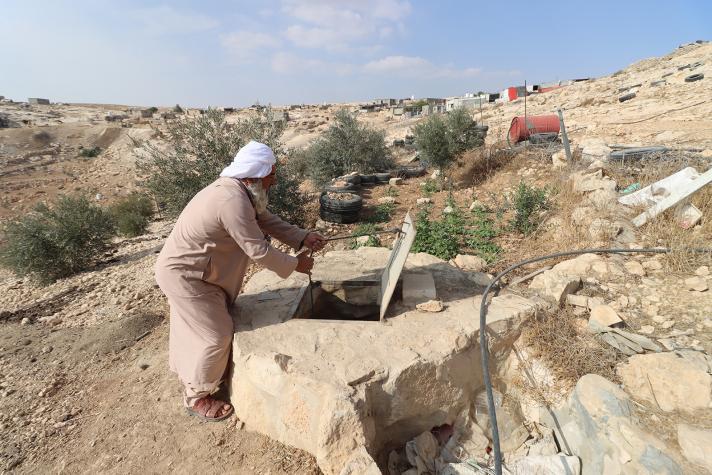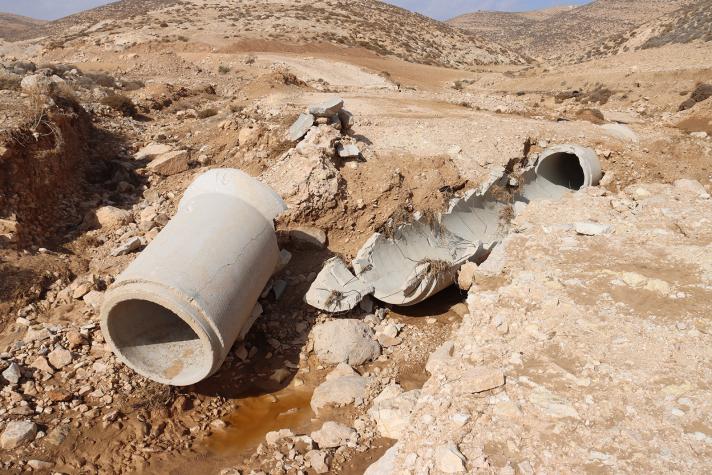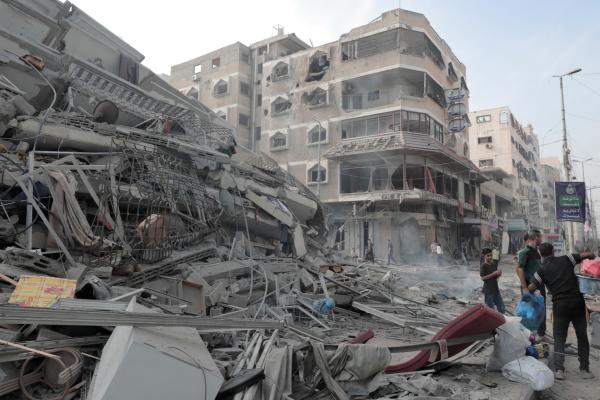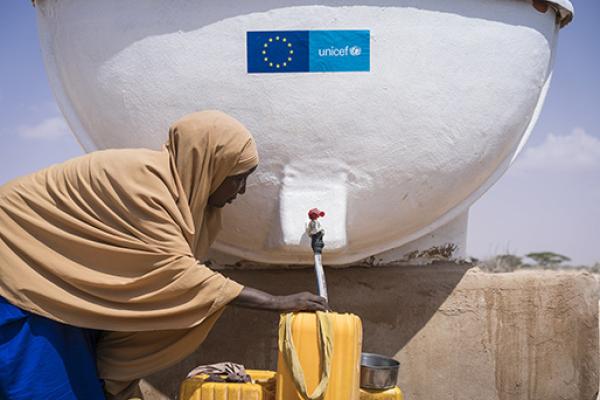It is olive harvesting time in the Middle East. Unfortunately, no olive branch is being extended in Palestine. Palestinians in the West Bank are experiencing the most violent and deadly year since 2005.
Hamamdeh planted his first olive grove 8 years ago. “In our dry area of Masafer Yatta, I have to irrigate them to keep them alive in summer,” he says.
‘Occupying powers’ are obliged to provide essential services to the population. But instead of providing a water network to the villages, Israel continues to block access.
The EU and other donors have installed 16 km of water pipes to provide the population with a source of water, but some of them were later destroyed. Hamamdeh is trying to stay positive despite this uphill battle to access water.
The Israeli army has been trying to drive Palestinians out of Masafer Yatta, an area in the West Bank’s southern Hebron hills, for at least 40 years, since declaring most of the area a closed military zone.
Those Palestinians who manage to stay in Masafer Yatta despite the threats by Israeli authorities and settlers must also contend with structural violence that targets their most basic human needs.
Masafer Yatta’s 18 communities in Firing Zone 918 are scattered throughout arid hills and linked together by rough dirt roads. Some 20 kilometres from the Dead Sea and abutting the armistice line that separates the West Bank from Israel, these Palestinian hamlets were never provided with the basic trappings of modern life.
Most residents get their power from solar panels, almost all of which are funded by international donors. There is no formal water infrastructure. More than 155,000 Palestinians in the West Bank lacked piped water or had a poor supply.
In 2018, the West Bank Protection Consortium and the Humanitarian Fund (the emergency pooled fund for the occupied Palestinian territory, managed by the UN Office for the Coordination of Humanitarian Affairs (OCHA)) co-funded the construction of a water network for the communities in Firing Zone 918, at the cost of €136,000.
The EU, other European states and Australia have funded the water network, though this has not stopped the Israeli army from regularly confiscating or destroying the pipes.
Between 2020 and 2021, the West Bank Protection Consortium installed nearly 16 kilometres of water piping in the area. Israeli authorities have destroyed or confiscated more than 3.85 kilometres of that infrastructure during the same period. This included 3.7 kilometres during one day in November 2020, directly affecting four Palestinian communities.
Ismail Abu Aram, 56, a resident of Isfey Al-Fauqa, was among those who lost their water connection in the incident. “They cut the pipes every 10 metres to prevent residents from reconnecting it,” Abu Aram says.
The donor-funded water network was dismantled the day after the community received piped water for the first time.
“Now I pay 400 shekels [€109] for water I get by truck. I need 4 trucks per month for the exorbitant sum of 1,200 shekels [€327]. That is a lot of money,” Abu Aram says. The trucks can be confiscated if the Israeli military catches them delivering water in the area, he adds.
“I am always worried about access to water. This is what occupies my mind.”
An act of perseverance
Naim Hamamdeh, of Umm Fagarah, refused to accept the lack of water and decided to plant several almond, grape and olive groves.
“Olives don’t need to be irrigated in the West Bank. However, in our dry area of Masafer Yatta, I have to keep them alive in summer,” says Hamamdeh.
Hamamdeh planted his first olive grove 8 years ago. Today, he has 15 dunams (3.7 acres).
“Financially, it’s not a profitable project to be created here, but I feel happy to maintain my land,” he says.
3 years ago, his community was connected to a water network for the first time. The new water pipes, however, only reach some of his orchards, and he has to transport water with his tractor and store it in wells to irrigate his trees.
“One day, I will be able to reach a stage where I can make a good income and enjoy freedom in this area, God willing,” he says.
Story by Ahmad Al-Bazz, NRC.
Publication date: 29/11/2022




